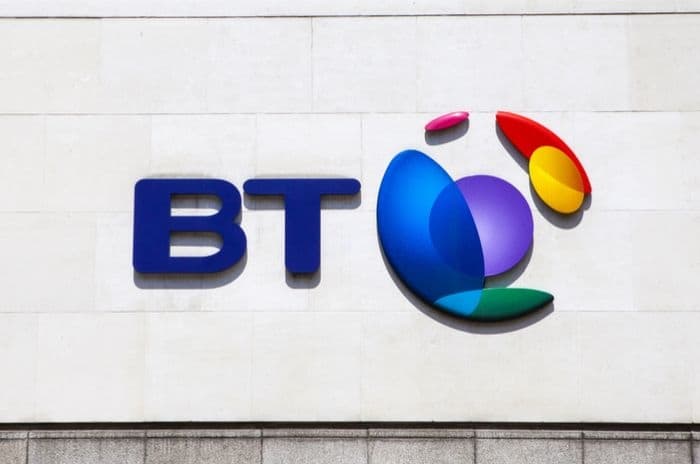Home > TV & Broadband > News > BT to block 25m nuisance calls per week
BT to block 25m nuisance calls per week
BT have announced that they are preparing to launch a free service that will automatically divert nuisance calls before they reach customers' landlines.

When the service comes online BT estimate that it will divert up to 25 million unwanted calls a week, sending them to a junk voicemail box instead of our phones.
BT say the system will "harness huge computing power to analyse large amounts of live data", which should enable them to identify "rogue numbers" and add them to a network-wide BT blacklist.
Although it's unlikely that the service will be available until later in the year, customers are already able to pre-register their interest - important, because it'll only be available to BT landline customers who opt in.
Personalised blocking
As well as relying on BT to block calls, users will be able to add numbers to a personal blacklist, and nominate whole categories of numbers they want diverted from their phone -international calls, for example, or withheld numbers.
In this regard, BT are asking users to help them improve and expand the service, saying that if large numbers of customers identify troublesome numbers these will be added to BT's blacklist database.
BT have also promised to notify Ofcom and the Information Commissioner's Office (ICO) when they identify particularly troublesome numbers.
John Petter, chief executive of BT Consumer, says the service has the potential to "remove a major hassle and grief for millions of customers".
One of the keys to being able to create such a blacklist, however, is having caller ID enabled - and while it used to be free for all BT customers, it now costs £1.75 a month for those who aren't on BT Basic (details here) or who haven't specifically signed up to BT's 12-month Caller Display contract.
Other networks
It's worth pointing out here that there are providers who still offer caller display free of charge - and some who are also blocking nuisance calls at a network level already.
People with Sky and TalkTalk simply have to request that caller display be activated; TalkTalk also offering last number barring free of charge.
In fact, for all their more recent customer security woes, they've been pretty good about protecting their users from nuisance calls at least.
Just as BT are promising to do, TalkTalk already offer a service whereby customers can report suspicious calls or numbers and get them added to a network-wide blacklist.
On their help and support pages they proudly state that they've "blocked 340 million calls across our network in the last year" - equivalent to 80 nuisance calls per customer.
They say they're now preventing "around 70 million calls a month" from making it to our phones.
They were doing this well before they signed up to the Ofcom Memorandum of Understanding (MoU) on Nuisance Calls, which commits signatories to cooperating on technical measures to help "reduce the impact of unlawful nuisance calls on consumers".
Growing problem
In the past few years, the Government say that there has been a "substantial" rise in the number of people complaining about nuisance calls, and in 2014 they set up a task force to look into the problem and how it could be tackled.
The latest research from that task force has found that three quarters of people with a landline receive unwanted calls each month.
Last month the Government announced plans to make it a legal requirement for marketing companies display the number they're calling from.
Tips for cutting nuisance calls ourselves
The home phones that can help
But even so, the onus is still on us to try to do something about calls from those numbers - from buying specialised handsets, to signing up with services like the Telephone Preference Service (TPS).
And while services like the TPS are backed by communications regulator Ofcom and the ICO, they aren't particularly effective against companies that either don't know or simply ignore the rules governing the marketing industry.
Last year the ICO handed out numerous fines to various companies who breached the rules: in September, a green energy company were fined £200,000 for making more than six million unsolicited automated calls.
The company's owners claimed they didn't know what the rules surrounding the use of personal data were.
There were also fines for a couple of companies making unsolicited and unwelcome marketing calls with the intention of selling services they claimed would stop further nuisance calls.
More please
As mentioned above, BT aren't the only operator to be working on network-wide call blocking - but they're still unusual for doing so.
There are 10 UK phone companies signed up to the Ofcom MoU on nuisance calls, but only BT and TalkTalk are explicit about what they're doing to proactively protect customers.
As spammers have the technology and capability to call from different numbers, or make it seem like they're doing so, each time they call, asking customers to block individual numbers can seem rather futile.
We need the networks to harness that ability to spot call patterns and "rogue numbers", as BT call them, and to pass that information on to the regulators. Only then can we hope to see the number of nuisance calls really drop off - no matter whose phone service we take.
Receive consumer updates that matter in our newsletter

We are independent of all of the products and services we compare.

We order our comparison tables by price or feature and never by referral revenue.

We donate at least 5% of our profits to charity, and we aim to be climate positive.
Latest News

20 February 2026
Virgin Media complaints hit six-year low
18 February 2026
Virgin Media O2 owners to buy Netomnia parent in £2bn deal
18 February 2026
HBO Max UK launch confirmed for MarchReceive consumer updates that matter in our newsletter


